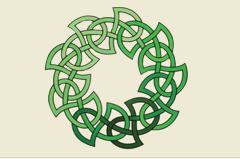Article Title
Whimsy and Wisdom: Fairyland as a Window to Reality in the Fiction of Chesterton and MacDonald
Abstract
A comparison of how fairyland is employed in the fiction of G.K. Chesterton and George MacDonald, and the role fairyland plays in the personal development of their fictional characters, reveals parallels and important divergences between the two writers' philosophies. Their treatments of fairyland share the context of fixed moral standards that are clearly understood by fairyland's habitants and visitors, but disclose the authors' differing definitions of the relationship between personal responsibility and consequences. Fairyland, with its mysterious, imperative rules, and glorious generosity of rewards, provides a framework for explicating with startling clarity the dangerous immediacy of the consequences of moral choice. Chesterton and MacDonald's unique approaches to fairyland, its moral rules and its purpose, provide a window into their fundamental beliefs about reality, and the ultimate nature of the moral universe.
Recommended Citation
Dooley, Jessica D.
(2012)
"Whimsy and Wisdom: Fairyland as a Window to Reality in the Fiction of Chesterton and MacDonald,"
Inklings Forever: Published Colloquium Proceedings 1997-2016: Vol. 8, Article 4.
Available at:
https://pillars.taylor.edu/inklings_forever/vol8/iss1/4
Included in
English Language and Literature Commons, History Commons, Philosophy Commons, Religion Commons

